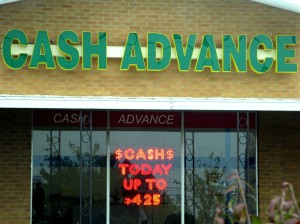November 11th, 2024 by Admin
In honor of Veteran’s day, we wanted to say more than thank you. We want to provide you with some value and hope this article is of help. Here are resources for veterans opening a business.

During the making of this post, we found that one of the best places to start was the US Department of Veteran Affairs. They provide quite a well thought-out a page of resources for veterans. But we wanted to dig in more and post the ones we saw that could serve our readers best.
If you are still in the idea phase and are not sure if entrepreneurship would be the best thing for you and your idea, we invite you to check out the US Small Business Administration website. Here you will be able to see and learn how to prepare a business plan and even how to figure out how much money you need to get your dream started. The SBA is a useful (and free) tool to get started and to keep handy as your business grows.
VBOC: The Veterans Business Outreach Center is a program dedicated to helping transitioning service members, veterans and military spouses looking to start, purchase, or grow a business. The program is located nationwide, and you can find your nearest VBOC center here.
OSDBU’s Vets First Verification Program: Once your business is set up, you can apply for the Vet’s First Verification Program. This program will verify your business and will give you priority in competing for federal government contracts
Once your business is up and running and you get your business verification, you can attend events like the NVSBE to bring approved businesses in touch with federal government contracts.
VA SBA Loans: For many businesses, the only way to start or grow is to get a business loan. Luckily, the SBA offers loan options that can help Veterans. The SBA also offers competitive rates and a plethora of resources to ensure your business succeeds, so we recommend you taking the time to check it out.

There are many resources out there for veterans and business owners alike, but we think this can be a great start to help you look into options as a Veteran and business owner.
We want to take this time to thank you for your service.
Posted in Small Business Improvement Tagged with: business, business loans, business owner, business tips, Department of Veterans Affairs, entrepreneur, loans, small business, small business owner, US, Veteran's Day
April 6th, 2015 by Elma Jane
Merchant Cash Advance – A lump-sum payment to a business in exchange for an agreed-upon percentage of future credit card and/or debit card sales. The term is now commonly used to describe a variety of small business financing options characterized by short payment terms (generally under 24 months) and small regular payments (typically paid each business day) as opposed to the larger monthly payments and longer payment terms associated with traditional bank loans.
Merchant Cash Advance companies, provide funds to businesses in exchange for a percentage of the businesses daily credit card income, directly from the processor that clears and settles the credit card payment. A company’s remittances are drawn from customers’ debit-and credit-card purchases on a daily basis until the obligation has been met. Most providers form partnerships with payment processors and then take a fixed variable percentage of a merchant’s future credit card sales.
The Term Merchant Cash Advance – may be used to describe purchases of future credit card sales receivables, revenue and receivables factoring or short-term business loans.
This structure has some advantage over the structure of a conventional loan. Most importantly, payments to the merchant cash advance company fluctuate directly with the merchant’s sales volumes, giving the merchant greater flexibility with which to manage their cash flow, particularly during a slow season. Advances are processed quicker than a typical type loan, giving borrowers quicker access to capital. Also, because MCA providers like typically give more weight to the underlying performance of a business who may not qualify for a conventional loan.
Merchant Cash Advances are often used by businesses that do not qualify for regular bank loans, and are generally more expensive than bank loans. Competition and innovation led to downward pressure on rates and terms are now more closely correlated with an applicant’s FICO score.
There are generally three different repayment methods:
Split withholding – when the credit card processing company automatically splits the credit card sales between the business and the finance company per the agreed portion. The most common preferred method of collecting funds for both the clients and finance companies since it is seamless.
Lock box or trust bank account withholding – all of the business’s credit card sales are deposited into bank account controlled by the finance company and then the agreed upon portion is forwarded onto the business via ACH, EFT or wire. The least preferred method since it results in a one-day delay in the business receiving the proceeds of their credit card sales.
ACH withholding – when structured as a sale, the finance company receives the credit card processing information and deducts its portion directly from the business’s checking account via ACH. When structured as a loan, the finance company debits a fixed amount daily regardless of business sales.
Posted in Best Practices for Merchants, Financial Services, Merchant Account Services News Articles, Merchant Cash Advance, Merchant Services Account Tagged with: ach, bank loans, business loans, checking account, conventional loan, credit card processing, credit card sales, credit-card, debit card, finance company, loan, MCA providers, merchant, merchant cash advance, payments
March 17th, 2015 by Elma Jane
Merchant Cash Advance – A lump-sum payment to a business in exchange for an agreed-upon percentage of future credit card and/or debit card sales. The term is now commonly used to describe a variety of small business financing options characterized by short payment terms (generally under 24 months) and small regular payments (typically paid each business day) as opposed to the larger monthly payments and longer payment terms associated with traditional bank loans. The term Merchant Cash Advance may be used to describe purchases of future credit card sales receivables, revenue and receivables factoring or short-term business loans.
Merchant Cash Advance companies, provide funds to businesses in exchange for a percentage of the businesses daily credit card income, directly from the processor that clears and settles the credit card payment. A company’s remittances are drawn from customers’ debit-and credit-card purchases on a daily basis until the obligation has been met. Most providers form partnerships with payment processors and then take a fixed variable percentage of a merchant’s future credit card sales.
These Merchant Cash Advances are not loans – rather, they are a sale of a portion of future credit and/or debit card sales.
This structure has some advantage over the structure of a conventional loan. Most importantly, payments to the merchant cash advance company fluctuate directly with the merchant’s sales volumes, giving the merchant greater flexibility with which to manage their cash flow, particularly during a slow season. Advances are processed quicker than a typical type loan, giving borrowers quicker access to capital. Also, because MCA providers like typically give more weight to the underlying performance of a business who may not qualify for a conventional loan.
Merchant Cash Advances are often used by businesses that do not qualify for regular bank loans, and are generally more expensive than bank loans. Competition and innovation led to downward pressure on rates and terms are now more closely correlated with an applicant’s FICO score.
There are generally three different repayment methods:
Split withholding – when the credit card processing company automatically splits the credit card sales between the business and the finance company per the agreed portion. The most common preferred method of collecting funds for both the clients and finance companies since it is seamless.
Lock box or trust bank account withholding – all of the business’s credit card sales are deposited into bank account controlled by the finance company and then the agreed upon portion is forwarded onto the business via ACH, EFT or wire. The least preferred method since it results in a one-day delay in the business receiving the proceeds of their credit card sales.
ACH withholding – when structured as a sale, the finance company receives the credit card processing information and deducts its portion directly from the business’s checking account via ACH. When structured as a loan, the finance company debits a fixed amount daily regardless of business sales.
Posted in Best Practices for Merchants, Merchant Account Services News Articles, Merchant Cash Advance Tagged with: ach, bank loans, business loans, checking account, conventional loan, credit card processing, credit card sales, credit-card, debit card, finance company, loan, MCA providers, merchant, merchant cash advance, payments
August 7th, 2014 by Elma Jane
Bill Me Later Is Now PayPal Credit, PayPal Working Capital Exceeds $150 Million and Both are Going Global. Delivering flexible and convenient credit products is something. Bill Me Later with eBay (PayPal), a vision to make shopping and paying easy, flexible and convenient. Announcing the evolution of Bill Me Later to PayPal Credit and the exceptional growth of PayPal Working Capital a global portfolio of credit solutions that help people and businesses leap forward.
PayPal Credit Evolves and Plans to Expand to the UK and Germany
As people and businesses know and trust the PayPal name, this is a natural and logical brand transformation. It also demonstrates how credit are moving more towards the center of the business, aligning it more closely with overall brand and working as a partner with businesses to spur growth. Customers and merchants across the pond have been asking for the flexibility and convenience of PayPal Credit in their markets, today they’re also announcing the plan to introduce PayPal Credit to the UK and Germany. People will begin to see PayPal in places they haven’t seen before, allowing shoppers to easily make purchases with financial flexibility.
Since the pilot program launched last September, more than 20,000 businesses have collectively borrowed more than $150 million in PayPal Working Capital business loans through their lending partner, WebBank. The program is also expanding to the UK and Australia to fuel business growth. Businesses in these countries will have access to capital in minutes once they apply and are approved through a simple online interface. PayPal Working Capital allows these businesses to repay with a share of their sales they choose, and don’t repay on days they don’t have sales. The program uses a business’s sales history, there is no credit check or extensive documentation required. The loan charges a single, affordable fixed fee instead of periodic interest so businesses know the cost of the loan up front. Offering these products more broadly is a sign of the power that credit brings to both merchants and consumers. Merchants can leverage credit as a tool to secure capital and grow their businesses. Additionally, they can offer credit with flexible payments options for their customers and immediate sales, while consumers experience freedom of choice when buying what they want when they want it.
Posted in Merchant Account Services News Articles Tagged with: Bill Me Later, business loans, capital, credit check, credit products, credit solutions, customers, ebay, fee, financial flexibility, global portfolio, Merchant's, PayPal, PayPal Credit, periodic interest



